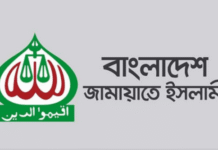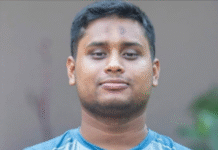TBS

Since the fall of the Awami League government on 5 August 2024, at least 20 new political parties have emerged in Bangladesh’s political landscape. The situation might suggest a new revolution in politics. However, the reality is that most of these parties have remained limited to mere appearances, lacking significant activity on the ground. In fact, even though nearly a month has passed since the call for registration applications, as of 7 April, none of the newly emerged parties have applied for registration with the Election Commission (EC).
Among the newly formed parties that emerged after the fall of the Sheikh Hasina-led government, one of the most notable is the Jatiya Nagorik Party or National Citizen Party (NCP), founded by the student leaders who were at the forefront of the July revolution that toppled the AL government.
Other parties that have made their debut include: the Samata Party, the Nucleus Party of Bangladesh, the Jatiyatabadi Ganatantrik Party, the Bangladesh Janopriyo Party, the Bangladesh Sangskarbadi Party, the Bangladesh Jagrata Party, the Bangladesh Ganatantrik Party, the Desh Janata Party, the Bangladesh Ganatantrik Shakti, the Bangladesh Social Democratic Party, Muktir Dak 71, the Jatiya Biplobi Parshad, the World Muslim Community, another faction of the Samata Party, the Amjanatar Dal, and the Ganatantik Nagarik Shakti.
Among these parties, the NCP has attracted the most attention — though it has faced more criticism than praise.
Most of the other parties lack any clear political activity. Some have remained limited to just announcing their formation. Many have yet to begin any political or organisational activities at all. A few parties are trying to form partial committees in certain upazilas and districts. On the other hand, some parties have started off with only a handful of members, making it practically impossible for them to carry out any activities on the ground.
Several parties, on the day of their launch, made grand declarations about working extensively for the welfare of the country and nation, as well as for political change — but those promises seem to have faded away with the announcements themselves.
Although the Election Commission issued a public notice in March inviting applications for party registration by 7 April, not a single newly formed party had applied. As of that date, only one party — the Bangladesh Conservative Party — has submitted an application. This party has also applied for registration ahead of the 2024 national elections but failed to meet all the required conditions and was therefore not granted registration at the time.
Khayes Ahmed Bhuiyan, secretary general of the Bangladesh Conservative Party, told TBS, “Our party has been active for many years. We had applied for registration in 2024 as well, but due to some discrepancies in the information, we were not granted registration at that time. Now those issues have been corrected, and the application has been resubmitted.”
Criticising such political parties, eminent jurist Shahdeen Malik told TBS, “A political party is expected to have a guiding principle or ideology. But these parties lack any such ideology. As a result, they show no real political activity. Most of them seem to emerge solely with the aim of gaining financial benefits.”
He further said, “A large portion of these parties don’t even participate in elections. And when they do, there are hardly any instances of their candidates winning — many even lose their deposits.
“Since it doesn’t cost much to form a political party these days, new ones keep emerging one after another. And as there is no legal authority within our democratic framework to prevent them, they continue to appear as they please.”
13 parties applied for registration even before public notice issued
Following the ouster of the AL government, 13 political parties applied to the Election Commission seeking registration. These included the National Awami Party (NAP Bangladesh), the Bangladesh Development Party (BDP), the Samata Party, the Bangladesh Jatiya Bhumihin Andolan, the Bangladesh Baishammabirodhi Ganatantrik Dal, the National Congress Bangladesh, the Bangladesh Muslim Party–Jatiya Party, the Trinamool Jatiya Party, the Bangladesh Republican Party, the Sarbojan Biplobi Dal and the Moulik Bangla.
However, upon contacting the relevant registration wing of the Election Commission, it was learned that several parties which were denied registration in 2024 submitted appeals requesting a re-evaluation of their previous applications. But as per the law, there is no provision for re-evaluation — they must submit fresh applications. The deadline for submitting applications for party registration is 20 April.
According to information from the Election Commission Secretariat, ahead of the 12th National Parliamentary Election, 93 new parties had applied for registration in 2023. Among them, the then Election Commission granted registration to two highly controversial parties — the Bangladesh Nationalist Movement (BNM), widely known as the Kings Party, and the disputed Bangladesh Supreme Party.
Prior to that, ahead of the 11th National Parliamentary Election in 2018, the Election Commission did not grant registration to any of the 76 parties that had applied, citing failure to meet the required conditions. However, in 2019, Bobby Hajjaj’s party, the National Democratic Movement (NDM), secured registration following a court order.
Several parties got registration after fall of AL government
Following the fall of the AL government, the AB Party was granted registration by court order. In addition, the Election Commission registered Nurul Haque Nur’s Gono Odhikar Parishad, Mahmudur Rahman Manna’s Nagorik Oikya, and Zonayed Saki’s Gonosonghoti Andolon. The Bangladesh Development Party (BDP) also received registration through a court directive.
The party registration system was introduced at the Election Commission ahead of the 9th Parliamentary Election in 2008. So far, 53 parties received registration from the EC. However, the registrations of five parties — Jamaat-e-Islami, Freedom Party, Oikjoboddho Nagorik Andolon, PDP, and JAGPA — were later cancelled due to failure to meet conditions, non-compliance, or court orders. The decision regarding Jamaat-e-Islami was later overturned. As a result, the current number of registered political parties with the Election Commission stands at 49.

 Keep updated, follow The Business Standard’s Google news channel
Keep updated, follow The Business Standard’s Google news channel







